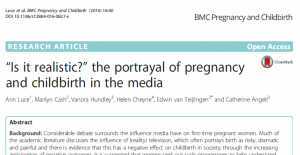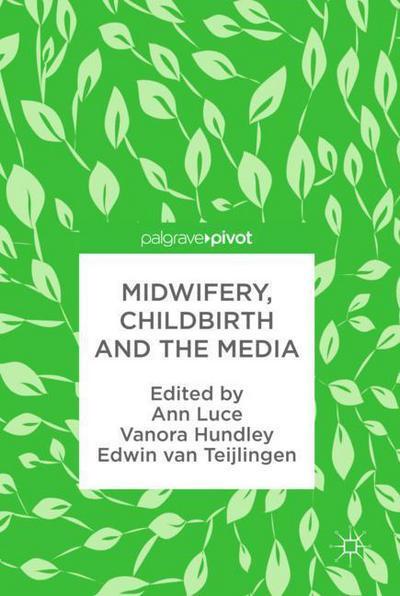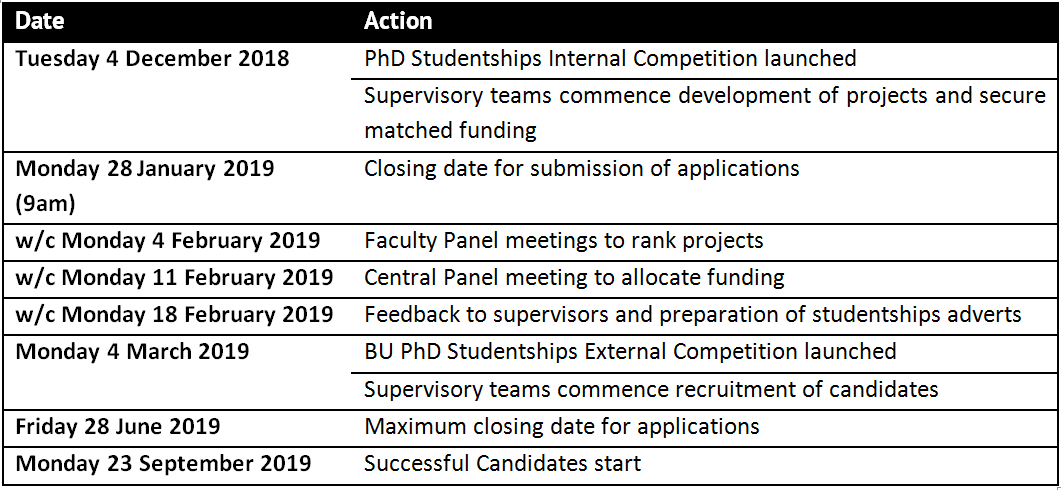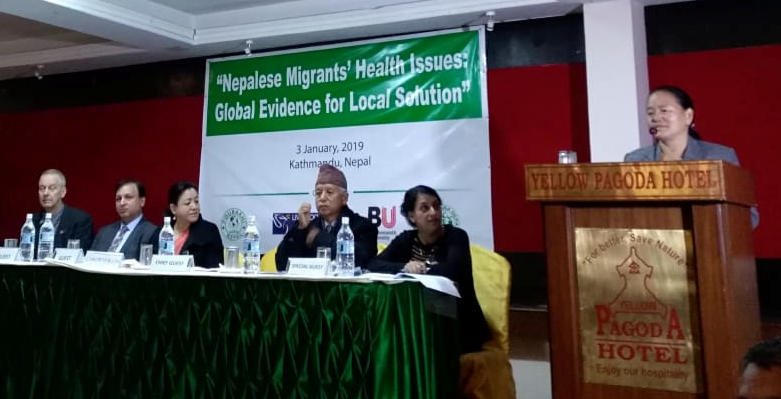Value for money (1) – cutting low value university courses
A report by Onward published on 7th January sets out some ideas for addressing the concerns about high student loans: A question of degree – Why we should cut graduates’ taxes and pay for it by reducing the number of low value university courses. Not much surprise about what they recommend then….
Who are they?
“Onward is a powerful ideas factory for centre-right thinkers and leaders. We exist to make Britain fairer, more prosperous and more united, by generating a new wave of modernising ideas and a fresh kind of politics that reaches out to new groups of people. We believe in a mainstream conservatism – one that recognises the value of markets and supports the good that government can do, is unapologetic about standing up to vested interests, and assiduous in supporting the hardworking, aspirational and those left behind. Our goal is to address the needs of the whole country: young as well as old; urban as well as rural; and for all parts of the UK – particularly places that feel neglected or ignored in Westminster.”
Its foreword is by two MPs: Neil O’Brien OBE MP and Gillian Keegan MP:
…at present we have a dramatically lop-sided system. University education dominates at the top of every profession, and every institution. In contrast, technical education and apprenticeships have been the poor relation for decades, neglected and underfunded. Until recently, these courses have not even provided any route to high level qualifications or top jobs. In recent years that has started to change, with the creation of higher level technical education, degree apprenticeships and the forthcoming Institutes of Technology. But still there’s a long way to go. And a lot to change. Thanks to new government data we now know that there are many people for whom it is not worth incurring over £50,000 of debt to obtain a university degree – either for them, or for the government. This paper concludes it is between a fifth and a quarter of university students. We now know specifically which courses, at which institutions, see their graduates earning too little for their degree to have been worth it financially. That’s not the only way in which the facts have changed in recent years either. New data on the dramatic imbalances of wealth between generations makes it clear that we need to take urgent action to help younger generations enjoy the same opportunities their parents had. ….
The challenges:
- Graduates face some of the highest marginal tax rates of any taxpayers in England and Wales, compounding imbalances of wealth between the generations
- In economic terms, university represents extremely poor value for money for some graduates, especially those studying certain subjects:
- Earnings varies considerably by subject…. Graduates studying medicine, law, economics and the hard sciences (“STEM subjects”) enjoy high returns.
- Lower earning courses included degrees in creative arts, psychology, agriculture, combined studies, mass communications, English and social studies (excluding economics).
- The lowest earning subjects of all were creative arts courses, which had the largest number of graduates of any course type despite the lowest earnings. Ten years after graduating, the median creative arts graduate does not earn above the £25,000 repayment threshold and is not paying anything back.
- There is little evidence that market forces are driving students towards courses with high returns.
- Low returns and high interest rates combine to ensure most loans are never fully paid back
- Despite being neglected, technical education is already a better route to higher earnings for many students. If we invested more in higher technical education, it could be even better
- Those with the lowest prior attainment are the most likely to be financial losers under the current system
- Perhaps unsurprisingly, the public do not believe the current system of student loans is fair or represents value for money
- Simply abolishing tuition fees does nothing for graduates, and is prohibitively expensive for taxpayers, including many who have not themselves attended university
- Reducing tuition fees from their current level would do little to reduce the day-to-day repayment burden of graduates
- Replacing loans with a graduate tax is simpler but is unlikely to lead to lower graduate repayments and would worsen ‘brain drain’
- Shifting the costs to employers would do little for graduates, and create significant distortions
- Altering rates and thresholds might have the desired effects, but compound other issues with loan forgiveness and accounting
The recommendations:
Value for money (2) – no secrets revealed yet
The Education Committee published its report, Value for Money in Higher Education, on 5 November 2018. The government response to the Committee’s report was published on 3rd January 2019
Interestingly it starts by setting the tone for what is to follow:
This document sets out the government’s response to the Committee’s report and clarifies the responsibilities of the Office for Students (OfS) and the Institute of Apprenticeships in respect of the issues raised. It also reflects that the government is continuing to develop policy in these areas alongside the Review of Post 18 Education and Funding, which will conclude in 2019.
That about sums it up. We’ve set out the responses below in summary with some comments.
Value for money for students and the taxpayer
- Recommendation: Every higher education institution should publish a breakdown of how tuition fees are spent on their websites. This should take place by the end of 2018, and we recommend that the Office for Students intervene if this deadline is not met.
Response: [this is for the OFS to deal with]
- Recommendation: Unjustifiably high pay for senior management in higher education has become the norm rather than the exception and does not represent value for money for students or the taxpayer.
Response: Universities receive significant amounts of public funding, so it is only right that their senior staff pay arrangements command public confidence and deliver good value for both students and taxpayers. We want to see senior staff pay in universities that is fair and justifiable.
[ie, this is for the OFS to deal with]
- Recommendation: The current system of self-regulation for senior management pay is totally unacceptable. We call for the Office for Students to publish strict criteria for universities on acceptable levels of pay that could be linked to average staff pay, performance and other measures that the Office for Students sees fit. The Office for Students should take swift action if this is not the case.
Response: In addition to the requirement for providers to publish justifications for their pay levels as outlined above, the OfS requires providers to publish the pay multiple of the head of the provider’s remuneration compared with that of all other employees. Universities are autonomous institutions and they are solely responsible for setting the pay of their staff, including senior managers. The government is not seeking to set pay levels within providers. These measures are designed to improve the transparency of pay levels for senior staff within HE providers.
- Recommendation: Institutions must routinely publish the total remuneration packages of their Vice-Chancellors in a visible place on their website. Vice-Chancellors must never sit on their remuneration boards and this should be enforced by the Office for Students.
Response: The OfS requires universities to publish full details of the total remuneration package of their vice-chancellors, including bonuses, pension contributions and other taxable benefits. Similar requirements will be extended to cover all staff with a basic salary of over £150,000 per annum once the regulatory framework is in full force. The Committee of University Chairs (CUC) published its HE Senior Staff Remuneration Code in June 2018. This says that a provider’s remuneration committee must be independent and competent, and that the head of the institution must not be a member of this committee. The OfS accounts direction already states that registered providers must have regard to this code.
The quality of higher education
- Recommendation: The TEF is still in its infancy and requires further improvement and embedding to become the broad measure of quality that we want it to be. We look forward to the independent review of TEF and recommend that it focuses on how the exercise is used by students to inform and improve choice. The review must include an assessment of how TEF is used in post-16 careers advice. For the TEF to improve value for money for students it must play a more significant role in the decision-making process of applicants.
Response: [it’s up to the OfS, but we have left some of the response here for you to read]
The OfS is planning targeted communications to improve awareness of TEF and will be undertaking specific research with applicants and students to understand how TEF ratings should be presented to ensure that they are meaningful to prospective students.
In June 2018, we published the findings of a report by IFF Research Ltd entitled ‘TEF and Informing Student Choice’. Although we recognise that only 15% of prospective students in that survey had used or intended to use TEF to inform their choice, the OfS had only published the first set of TEF outcomes in June 2017. For future cohorts it is worth noting that 68% of those surveyed considered that information on subject-level TEF would be useful.
Dame Shirley Pearce has been appointed as the independent reviewer of TEF in accordance with Section 26 of HERA. We will bring the concerns of the Committee to her attention, but as this is an independent review, with the reviewer’s obligations set out in statute, the department has no power to insist that her review addresses or excludes any particular issue.
- Recommendation: Institutions should move away from a linear approach to degrees, and enable more part-time, mature and disadvantaged students to study in higher education. We recommend that the Government’s current post-18 review develop a funding model which allows a range of flexible options including credit transfer and ‘hopping on and off’ learning.
Response: [it’s all about the post-18 review and the OfS]
..Supporting arrangements for students who wish to switch provider or degree is already an important part of the reforms enacted by HERA. Section 38 of the act places a duty on the OfS to monitor the provision of student transfer arrangements by registered HE providers and the use of such arrangements by students, and a summary power to facilitate, encourage and promote awareness of these arrangements. Section 38 will come into force on 1 August 2019. In the meantime, the strategic guidance issued in February 2018 by the department asked the OfS to continue to collect data on student transfers ….
…Studying part-time and later in life can of course bring considerable benefits for individuals, employers and the wider economy. The OfS targets an element of the Teaching Grant to recognise the additional costs of part-time study. In 2017/18, £72 million was made available, and the same amount was allocated in 2018/19 for this purpose. Furthermore, within the strategic guidance, we have also asked the OfS and the Director for Fair Access and Participation to encourage providers to consider the different barriers that mature learners can face in their Access and Participation Plans. This covers access to, success in, as well as progression from HE.
….We launched a review of Level 4-5 technical education in October 2017, which is working closely with the Review of Post-18 Education and Funding, to ensure a coherent vision for FE and HE. The review of level 4 and 5 education will examine how classroom-based level 4 and 5 education, particularly technical education, meets the needs of learners and employers. On the 6th December, the Secretary of State for Education set out his vision for why we need high quality technical education, and said – among other things -that we intend to establish a system of employer-led national standards for higher technical education. These will be based on existing apprenticeship standards and will provide progression opportunities for those completing T Levels from 2022.
- Recommendation: More flexible approaches to higher education should be supplemented by the option for undergraduates of studying for two-year accelerated degrees alongside the traditional three-year model. The post-18 review should investigate potential funding models to clarify the benefits and costs of accelerated degrees, taking into account fees, living costs and post-study earnings.
Response: [we’ve already done this] …on 29 November 2018 government laid regulations to enable higher annual accelerated degree fee caps to be charged by providers. This change will enable potential course revenue of up to 80% of the standard equivalent, while still offering accelerated students a significant saving of 20% on the standard total fee costs. …
- Recommendation: The introduction of two-year degrees must not create a two-tier system where students from disadvantaged backgrounds are encouraged to take them on the basis of cost. The Government’s review of higher education should include an impact assessment of how accelerated degrees will affect disadvantaged students.
Response: We acknowledge the Committee’s concern, which was also expressed by a number of respondents to the accelerated degrees consultation in 2018, where we asked specifically about access arrangements. Nevertheless, 74% of respondents still wanted accelerated degree fees to be treated the same as other higher course fees for the purpose of access.
We are not aware of any empirical evidence to suggest either that accelerated degrees are a qualitatively inferior form of degree study compared to their standard equivalents, or that the fees saving of an accelerated degree is seen as their most significant benefit by students. As noted above, the SLC Customer Insight surveys conducted in August 2018 indicated that both accelerated and standard students regarded the time saved on an accelerated course and the advantage of starting work one year faster than their peers, was the most significant benefit.
We know that the specific characteristics and challenges of accelerated study will not be right for all students. We will assess the effectiveness of accelerated degree funding and expenditure on access measures (compared to their standard equivalents), in the review to be undertaken three years after implementation of the higher accelerated degree fee caps regulations.
Skills
- Recommendation: We are extremely disappointed by the response from the Institute for Apprenticeships to widespread concerns from the higher education sector on the future of degree apprenticeships. We urge the Institute to make the growth of degree apprenticeships a strategic priority. Degree qualifications must be retained in apprenticeship standards, and the Institute must remove the bureaucratic hurdles which universities are facing. The Institute and the Education and Skills Funding Agency must engage much more actively with the higher education sector and take better account of their expertise.
Response: …The department is already working with the HE sector and will continue to do so, including meeting quarterly with a cross section of HE representative bodies to discuss apprenticeship policy issues. …In the last 3 months, 10 HE providers have undertaken user research and we will continue to involve these institutions in our ongoing research.
- Recommendation: Degree apprenticeships are crucial to boosting the productivity of this country, providing another legitimate route to higher education qualifications and bringing more students from disadvantaged backgrounds into higher education. We believe some of the money which is currently allocated by the Office for Students for widening access could be better spent on the development and promotion of degree apprenticeships and support for degree apprentices to climb the ladder of opportunity. All higher education institutions should offer degree apprenticeships, and we encourage students from all backgrounds to undertake them. We recommend that the Office for Students demonstrates its support for them by allocating a significant portion of its widening access funding to the expansion of degree apprenticeships specifically for disadvantaged students.
Response:…DfE have already provided the OfS with funding to support the expansion of degree apprenticeships and to widen participation through the Degree Apprenticeships Development Fund (DADF)
In March 2016 DfE launched a £10 million DADF to support the development and take up of degree apprenticeships over two years. In 2016-18, 18 projects were supported, involving over 45 universities and colleges. In 2017/18 funding was allocated to 26 projects…..
The government is looking forward to the forthcoming evaluation report of the Fund, which will help us and the OfS to consider how to focus spending on what has the greatest impact for students.
More widely, the National Apprenticeships Service has launched a number of projects to increase participation amongst underrepresented groups and to ensure apprenticeships are accessible to individuals from all backgrounds. This includes the ‘5 cities’ project, a partnership with five major cities to improve black, Asian and minority ethnic representation, and ‘Opportunities Through Apprenticeships’, a pilot project working with four local authorities to raise the value of apprenticeships in disadvantaged areas. The ‘Opportunities Through Apprenticeships’ project was launched in November 2018. It aims to support social mobility by creating opportunities for more apprentices from disadvantaged areas to undertake high value apprenticeship with higher earnings potential and progression.
…The HE sector is supportive of Level 6 plus and degree apprenticeships and is involved in their development – with at least 60 providers offering or intending to offer degree apprenticeships during the 2017/18 academic year from a pool of over 100 on the Register of Apprenticeship Training Providers.
The OfS will want to consider the Committee’s recommendations regarding the allocation of its widening access funding.
- Recommendation: The implementation of T-Level qualifications from 2020 could offer improved access to university for students from disadvantaged backgrounds. The Government should engage with universities and UCAS in order to determine an appropriate tariff weighting prior to the introduction of T-levels. We also encourage universities to continue to accept BTECs and put in place additional academic and pastoral support to these students throughout their studies.
Response: The department expects T Levels to provide all students, regardless of their background, with a high quality technical offer that is valued as highly as A levels. With content designed by employers, T Levels will prepare students for skilled employment or progression to higher technical study. As we prepare for the first teaching of T Levels, we are working closely with a wide range of partners, stakeholders, schools and colleges to ensure successful delivery.
…Individual HE providers are responsible for determining the qualifications that they will accept for the purposes of entry to higher education. Whilst recognising the institutional autonomy of HE providers and, in particular, their freedom to determine the criteria for the admission of students, we would encourage them to consider the content of the qualifications they require before making offers. DfE committed in May 2018 to carry out a review of qualifications at level 3 and below (excluding A Levels, T Levels and GCSEs), so that all funded qualifications have a distinct purpose, are high quality and support progression to good outcomes…..
- Recommendation: We recommend that universities look to include significant periods of work experience within undergraduate degree courses. This could be a year in industry, or shorter placements with local employers. We believe that practical experience of the workplace must become the norm in degrees and an integral part of making students ‘work ready’. There should also be a greater focus on the extent to which universities prepare their students for work in the TEF criteria.
Response: The numbers of undergraduates who undertake work experience within their degree courses are growing and we would like to see more universities and employers offering students these opportunities.
….We are working to support and encourage high quality new and innovative provision that has a strong offer for students, helping providers to navigate the regulatory system and we will continue to work with new providers to tackle any barriers that might arise.
There is a strong track record of collaboration and joint working between universities and businesses. For example, more than two-thirds of businesses have developed links with universities and more than a third are looking to grow their ties in the future. For example, Aston University has strong links to employers, and more than 70% of students undertake a year in industry as part of their degrees. Teesside University’s Digital City innovation initiative is helping local SMEs place graduate interns in their businesses by providing recruitment support and a 50% contribution towards their salary.
A traditional university course is not the only route to a successful career. Level 6 plus and degree apprenticeships allow universities to build partnerships with industry and professional bodies, working together to create a skilled workforce.
The Graduate Talent Pool is a government initiative designed to help new and recent graduates gain real work experience. This allows employers to advertise paid internships to new and recent graduates, free of charge. As of end of September 2018, 12,464 employers and 135,469 graduates had registered to use the service since the scheme’s launch…..
Social justice
- Recommendation: Higher education institutions spend a vast amount of public money on access and participation. The results of this expenditure are not always clear to see. There must be transparency on what they are investing in, a greater focus on outcomes for students and a rigorous evaluation process. In response to the Director of Fair Access’s new proposals we expect to see institutions focusing their efforts on value for money for the most disadvantaged students and facing penalties if sufficient progress is not made.
Response: [this is for the OfS to deal with]
- Recommendation: We recommend a move away from the simple use of entry tariffs as a league table measure towards contextual admissions, foundation courses and other routes to entry.
Response: The criteria for determining a HE provider’s position in a league table is a matter for its compilers. The government would not want the use of entry tariffs as a criterion to undermine the efforts of providers to take greater numbers of disadvantaged students.
- Recommendation: The Office for Students must clamp down on the rise in unconditional offers. Their steep increase is detrimental to the interests of students and undermines the higher education system as a whole.
Response: The department agree with the committee and we are disturbed by the recent large increases in the number of unconditional offers received by students and the potential impact these offers can have. In this respect we welcome the recent announcement by St Mary’s University Twickenham that they will stop using unconditional offers, in the light of evidence that some students who had enrolled with them after an unconditional offer was made did not get the A level grades they expected.
[this is for the OFS to deal with]
- Recommendation: The gap in entry rates between the most and least disadvantaged students remains too wide when it should be closing fast. We support the use of contextualised admissions to bring more students from lower socio-economic backgrounds into higher education. We recognise that this practice should not be used in isolation, and that more effective outreach should be followed by support for disadvantaged students throughout their degree. Institutions should state their contextualisation policies in their application information. By doing so disadvantaged students and schools in areas with lower rates of participation in higher education will have a better understanding of the entry requirements to different institutions.
Response: The department agrees that while good progress has been made in widening participation by under-represented and disadvantaged groups in HE, there is still more to be done. Control over admissions lies with institutions and this autonomy is protected under HERA.
Nevertheless, contextual admissions can play a role if they recognise the case for taking into account wider contextual factors in a student’s level of prior attainment: these type of admissions justify providers making offers of places to those they anticipate have strong potential to succeed in HE. It is important too that providers are transparent in their use of contextual information in offer and admission decisions, publish the rationale for any use of contextual offers, and make clear to applicants the circumstances in which they would make such offers. A clear policy on the use of contextual admissions should work in conjunction with effective outreach work, which is properly monitored and evaluated.
- Recommendation: We are deeply concerned by the fall in both part-time and mature learners, and the impact this has had on those from lower socio-economic groups going into higher education. We recognise that although the number of disadvantaged school leavers going into higher education has increased, the total number of English undergraduate entrants from low participation areas decreased by 15% between 2011/12 and 2015/16.
Response: [it’s for the post-18 review]
- Recommendation: The recent decline in part-time and mature learners should be a major focus of the Government’s post-18 education and funding review. We support calls for the review to redesign the funding system for these learners. The review should develop a tailored approach which moves away from the one size fits all approach which has driven the dramatic decline in numbers since 2012.
Response: [see above on flexible provision]
- Recommendation: Based on the overwhelming evidence we have heard during the inquiry, we recommend that the Government return to the pre-2016 system and reinstate the means-tested system of loans and maintenance grants.
Response: [it’s for the post-18 review]
Graduate employability
- Recommendation: We are encouraged by the increase in graduate outcomes information and believe this can both support more informed choices for students and make institutions more accountable for the destinations of their graduates. However, there is still a long way to go before students have access to robust data on graduate employment which will inform their choices.
Response: [it’s all about LEO]
- Recommendation: Better information on graduate outcomes must lead to a greater focus in higher education on outputs and outcomes. Higher education institutions must be more transparent about the labour market returns of their courses. This is not simply a measure of graduate earnings but of appropriate professional graduate-level and skilled employment destinations. We recommend that the Office for Students instructs all providers to be transparent about levels of graduate employment and secure this through funding agreements.
Response: New sources of information such as the Higher Education Statistics Agency’s (HESA) Graduate Outcomes survey, replacing the Destination of Leavers from HE, have an important role in improving information for students. ..
[plus TEF]
The OfS and its partners are developing options for a new resource to replace Unistats in 2019. This will ensure that data is presented in a way which supports students to understand and use the data in a meaningful and robust way
- Recommendation: The reforms introduced by successive governments to higher education have caused a growing tension between the perceived value of study to a student, the funding and the wider economic value of higher education. This has been caused in part by the way that the system has changed incrementally and is widely misunderstood. The current system of tuition fees and repayments is more akin to a graduate tax. Promoting better public understanding of this should form part of the HE funding review.
Response: [it’s all about the post-18 review and the OfS]
- Recommendation: Students lack sufficient high-quality information to make informed choices about higher education and the career paths which might subsequently be open to them. Decisions to take on a financial burden lasting most of a working lifetime are often made by students without adequate information or advice. The long-term implications of an adverse choice can leave students in a vulnerable position. Student choice is central to the debate over value for money in higher education. Our inquiry found a woeful lack of pre-application and career information, advice and guidance, particularly awareness of degree apprenticeships. The Government’s current post-18 review must look at routes into higher education, and the quality of careers advice which students receive.
Response: DfE’s Careers Strategy, published in December 2017, sets out a long-term plan to make sure that all young people have the information, advice and guidance they need to make informed choices about their education, training and employment options….
[It’s all about the OfS and the post-18 review]
Value for money (3) – the OfS position
The Office for Students issued their own response on 10th January. They promise:
- Work on transparency on value for money and calling for the sector to define best practice
- More transparency on remuneration
- Removing barriers to accelerated degrees
- Supporting apprenticeships through the Access and Participation guidance [what will that look like?]
- Gather and share evidence on work experience
- Force the sector to improve assessment and evaluation of access and participation efforts and continue with fining and licence conditions
- Raise concerns with league table compilers
- Announce action on unconditional offers by Spring 2019
- Challenge providers on mature students through access and participation guidance
- Replacing unistats
TEF
The OfS have released the data for all institutions including those not actively participating in the new round of TEF. The data sits alongside a refreshed set of criteria and judgements, with specific definitions of the Gold, Silver, Bronze standards. The provider narrative looks to remain influential in the refreshed model and the significant emphasis on the data metrics continues (it is the initial determinant of award level). Wonkhe have crunched the data to make initial institutional judgements which are an interesting read (here). When contemplating Wonkhe’s article remember the metrics comprise only part of the final award judgement.
Wonkhe’s analysis results in less institutions receiving gold overall, with none of the Russell Group institutions reaching the top slot. The below chart shows the movement by displaying institutions with current Gold, Silver, Bronze, provisional, or no current award (-) as the colour of their Wonkhe calculated new award (based only on their metrics). The interactive tableau chart is here.
But it’s all a bit theoretical as it is expected few institutions will enter year 4, as most don’t need to again until 2021 – and by them it may all have changed after the Parliamentary Review and the subject level TEf pilot….
Brexit update
The House of Lords EU Home Affairs Sub-Committee met to discuss the impact of the Horizon and Erasmus programmes and their future in a post Brexit Britain. Chris Skidmore, the Universities Minister, gave evidence. You can read the summary here.
Otherwise chaos continues – nothing has changed except that no deal looks a lot more likely…at least for this week.
KEF
Research England have launched their consultation on the Knowledge Exchange Framework. We’ll be working with colleagues across BU to prepare our response. They are also running a pilot.
We wrote about the build up to this in our policy update on 23rd November 2018 The proposal is for a set of metrics plus a narrative that gives the local context including strategic goals, context and local growth and regeneration, and public and community engagement.
Read more on Wonkhe:
Widening Participation and Achievement
A lack of aspiration is not the problem is a new thought provoking blog in Wonkhe which shuns the traditional view that disadvantaged young people attend university less because they lack aspiration and knowledge about the HE sector. It views poor educational achievement at school, brought about by the young person’s accumulation of multiple disadvantages through their childhood, as the crux of the problem. It highlights a study which recognises that these disadvantaged children are rarely exposed to the economic benefits that educational success brings. It suggests drawing on the psychological concept of ‘possible selves’ (considering what/how they want to be in the future to align thinking and motivation and kick start the attainment process needed to get there) as an alternative to aspiration raising in the future. (WP buffs will also want to check out this research on the topic.) Possible selves is a nice alternative to the deficit model approach to WP but it in isolation it seems unlikely to work. Broad and robust careers support would likely be needed to open the eyes of disadvantaged young people to the myriad of future employment possibilities they may not have been exposed to through their home and social environment. Yet careers support remains a long standing thorny problem that no Government has been able to resolve – it is costly, patchy, and cannot meet all needs. Ironically for a blog which favours Bourdieu’s thinking it is this concept of lack of social capital and networks which means possible selves cannot be a neat solution all by itself.
Attracting Mature Students – the barriers
- Coincidentally the ONS (Office for National Statistics) have analysed DfE survey data and report that the least qualified adults and vulnerable members of society have the least access to training to boost their employment opportunities and life chances. Lack of confidence was a factor in not accessing opportunities and there was an interesting finding that those without qualifications tended to focus on education or training as a way of improving their wellbeing, whereas those at the other end of the educational spectrum, with degrees or equivalent, seemed more driven by improving their job prospects.
- The biggest barriers to adults accessing training were, unsurprisingly, cost, caring/family responsibilities, poor health, and the aforementioned lack of confidence. Interestingly a past negative educational experience was rarely a barrier. Below is the full chart.
- The take up of education and training was exacerbated by a gender effect: Men responded more to incentives that were job or pay-related while women tended to choose more personal reasons such as meeting new people and building confidence. A higher proportion of men than women said an increased income would encourage further training and learning in the future and that their jobs and their ability to do them would be improved. Furthermore, more women than men said family and/or caring responsibilities would cause difficulties. Personal reasons, such as a lack of confidence also showed themselves as an issue for a higher proportion of women than men
- It would be interesting to compare these barriers that prevent adults from accessing or aspiring to HE study with mature student drop out reasons. Similarities would provide clear signposting on how HE institutions could better attract, support, and retain mature students which, while important in itself, is particularly acute during this period of squeezed recruitment and the young population dip.
Care Leavers – LSE have released a blog explaining why the national figure that only 6% of care leavers progress to HE is inaccurate and that tracking care leavers (who are rarely in a position to perform well educationally at age 16) to age 23 bring the entry rate up to almost 12% (research here). The article goes on to explore other care leaver related factors such as the importance of alternative vocational routes into HE and warns against using the entry statistics as they mask the difficulties with retention of care leavers whilst studying.
Alternative Spending – Wonkhe’s Let’s go fly a kite series sees three bloggers come up with some alternative ideas by which to tackle Access and Participation.
Impact of Selective Secondary Education in progressing to HE
HEPI have published The impact of selective secondary education on progression to HE. It finds that grammar schools potentially contribute to social mobility by enabling better access to elite higher education. It considers the shortcomings of research which mainly utilise Free School Meals as the main data indicator.
The report highlights that:
- A pupil from the most disadvantaged POLAR quintile is more than twice as likely to progress to Oxbridge if they live in a selective area rather than a non-selective area.
- BME pupils are more than five times as likely to progress to Oxbridge if they live in a selective area. It notes that England’s has 163 grammar schools which contribute 30% more BME students to Cambridge than all 1,849 non-selective schools combined.
The report calls for:
- Government to expand the Select School Expansion Fund in disadvantaged areas where this is supported by the relevant local authority.
- Non-selective schools to improve their efforts at enabling progression of high-ability pupils to highly selective universities and Oxbridge, working with grammar schools where appropriate.
- Department for Education to commission research explicitly considering the impact of selective schooling on the social mobility of children from households below median income.
On the report Wonkhe state: The Higher Education Policy Institute (HEPI) has published a provocative new paper on grammar schools and selective university access…It argues that grammars increase the likelihood of progression for pupils from the bottom two quintiles of social disadvantage and for Black and Minority Ethnic (BME) pupils. The analysis attempts to factor in the chances of children from different groups getting into a grammar school, and how those children who do get in perform.
It also examines the performance of new specialist maths schools and considers positive attitudes towards grammar schools among some of the public (compared to educational experts).
The report received much press attention:
- The i – Grammar schools ‘significantly boost chances of poor pupils attending top universities’
- Schools Week – Poor pupils at grammar schools twice as likely to attend Oxbridge, study claims
- tes – Grammars boost poorer pupils’ chances of getting into top universities
- The Times – Beacon grammars could take more poorer pupils
- The Times – The Times view on grammar schools: they provide only part of the answer
- Telegraph – Grammar schools send more ethnic minority students to Cambridge than all comprehensives combined
- Sky news – Grammar schools benefit disadvantaged kids says think tank
- The Daily Mail – Pupils from the poorest families are TWICE as likely to get into Oxbridge if they attend a grammar school, report finds
Nick Hillman, HEPI Director, stated:
- ‘The debate on grammar schools has become very one sided. Researchers line up to condemn them for inhibiting social mobility, and the schools do not perform well on every single measure. But the full evidence is more nuanced and shows some pupils benefit a great deal.
- Compared to other countries, we have a hyper-selective university system. Given so many people benefit from attending a grammar school, it seems what works for universities may also sometimes work for schools.’
Other News
Unconditional Offers: The OfS response to the Commons Education Committee’s report on value for money suggests the review of unconditional offer making will be published in Spring 2019.
Knowledge Exchange: Explaining a PhD thesis to the public can be tricky. In this light hearted article read how Canada is tackling this through the medium of cake.
Essay Mills: the ASA banned online advertising by essay mill Oxbridge Essays – here is QAA’s coverage of the judgement. The Independent also covered the decision.
Academic Freedom: Oxford law students have petitioned for a professor to be dismissed due to his opinions on homophobia. It is debated here on the Today programme and then featured in Parliament:
- Fiona Bruce (Congleton) (Con): May we have a debate on the importance of academic freedom? Universities are about the free and frank exchange of ideas, even if they are unfashionable and unpopular. Is it not wholly unacceptable to suggest that a respected academic such as John Finnis, emeritus professor of law and legal philosophy, who has taught at the University of Oxford for some 40 years, should be removed from office simply for holding traditional Catholic views? Is that not the opposite of diversity and open, robust debate?
- Andrea Leadsom: My hon. Friend raises an important point. It is essential that young people at university learn how to engage in robust debate and to challenge views with which they may not agree. The solution is not to silence those who make them. The Government said in our response to the Joint Committee on Human Rights’ report that we have concerns about the culture in universities in relation to free speech, and we made it clear that all “education is a place where students should be exposed to a range of ideas, including those that may be controversial and unpopular—and where they learn to think critically and challenge those who they disagree with, not shut them down.”
Accounting of student loans:
- Q – Wes Streeting: To ask the Secretary of State for Education, if he will ensure that the level of funding allocated to universities is not reduced as a result of the ONS decision on the treatment of student loans in Government accounts.
- A – Chris Skidmore: The Office for National Statistics (ONS) announced a new treatment of student loans in the public sector finances and national accounts on 17 December 2018. The decision by the ONS relates to the recording of student loans in the national accounts and public sector finances. Prior to the announcement of the ONS review, the government had already launched the Review of Post-18 Education and Funding in which, amongst other features of the system, funding is being considered.The review is considering how to ensure that the education system for those aged 18 years and over is accessible to all, is supported by a funding system that provides value for money and works for students and taxpayers. In addition, the review is considering how the education system incentivises choice and competition across the sector and encourages the development of the skills that we need as a country.
AND
- Q – Wes Streeting: To ask the Chancellor of the Exchequer, what estimate he has made of the amount by which the deficit will increase in 2018 as a result of the ONS decision on the treatment of student loans in Government accounts.
- A – Elizabeth Truss: The Office for Budget Responsibility (OBR) published estimates of potential impacts of the new treatment on the deficit in their October 2018 Economic and fiscal outlook. However, the Office for National Statistics (ONS) has made it clear that there is a lot to decide before their methodology is finalised. The ONS currently aim to fully implement the new treatment for student loans in the public sector finances in September 2019.
Immigration:
- Q – Lord Goodlad: Whether they have conducted an evaluation of the Tier 4 visa pilot for masters students; if so, when it was completed; and what changes are now proposed in the Immigration Rules.
- A – Baroness Williams Of Trafford: An initial evaluation of the Tier 4 Visa Pilot was published on gov.uk on 19 December. The evaluation supported the proposals set out in the Immigration White Paper: The UK’s future skills-based immigration system.
Subscribe!
To subscribe to the weekly policy update simply email policy@bournemouth.ac.uk
JANE FORSTER | SARAH CARTER
Policy Advisor Policy & Public Affairs Officer
Follow: @PolicyBU on Twitter | policy@bournemouth.ac.uk

 The #SURE2019 deadline is fast approaching!
The #SURE2019 deadline is fast approaching!
























 Second NIHR MIHERC meeting in Bournemouth this week
Second NIHR MIHERC meeting in Bournemouth this week Dr. Ashraf cited on ‘Modest Fashion’ in The Guardian
Dr. Ashraf cited on ‘Modest Fashion’ in The Guardian NIHR-funded research launches website
NIHR-funded research launches website MSCA Postdoctoral Fellowships 2025 Call
MSCA Postdoctoral Fellowships 2025 Call ERC Advanced Grant 2025 Webinar
ERC Advanced Grant 2025 Webinar Horizon Europe Work Programme 2025 Published
Horizon Europe Work Programme 2025 Published Horizon Europe 2025 Work Programme pre-Published
Horizon Europe 2025 Work Programme pre-Published Update on UKRO services
Update on UKRO services European research project exploring use of ‘virtual twins’ to better manage metabolic associated fatty liver disease
European research project exploring use of ‘virtual twins’ to better manage metabolic associated fatty liver disease